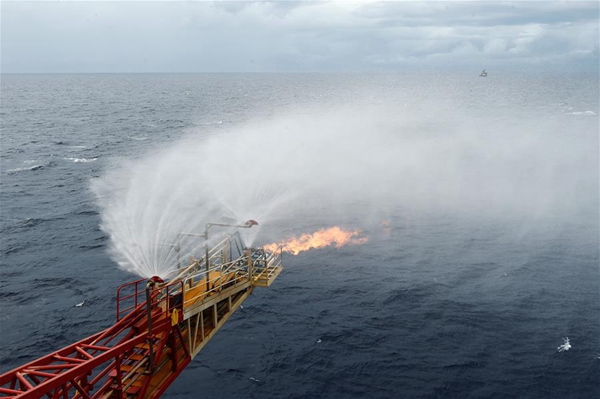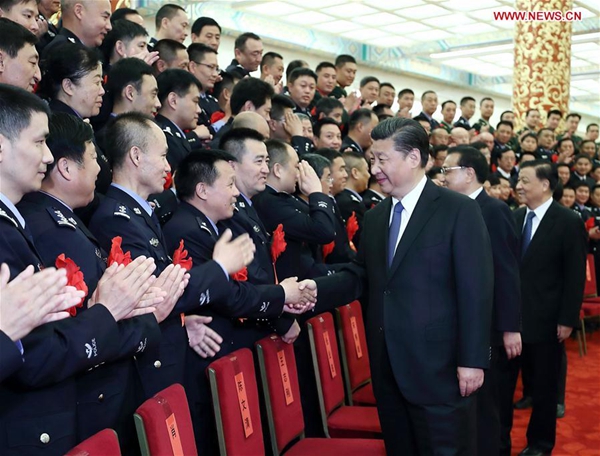|

|
|
Photo taken on May 16, 2017 shows the flames spouting from the trial mining site in the Shenhu area of the South China Sea. [Photo/Xinhua]
|
China has succeeded in collecting samples of combustible ice in the South China Sea, a major breakthrough that may lead to a global energy revolution, Minister of Land and Resources Jiang Daming said Thursday.
This is China’s first success in mining flammable ice at sea, after nearly two decades of research and exploration, the minister said at a trial mining site in the Shenhu area of the South China Sea Thursday.
Combustible ice usually exists in seabed or tundra areas, which have the strong pressure and low temperature necessary for its stability. It can be ignited like solid ethanol, which is why it is called “combustible ice.”
One cubic meter of “combustible ice”, a kind of natural gas hydrate, is equal to 164 cubic meters of regular natural gas.
China found flammable ice in the South China Sea in 2007.
International scientific circles have predicted that the natural gas hydrate is the best replacement for oil and natural gas.
According to Zhong Ziran, head of the China Geological Survey Bureau, combustible ice is more environmentally friendly and large reserves exist.
Mining of combustible ice started in the 1960s, but China began research in 1998.
Trial mining of combustible ice in the Shenhu sea, about 320 kilometers southeast of Zhuhai City in Guangdong, started on March 28. Experts first tapped the natural gas hydrate at a depth of 1,266 meters underwater last Wednesday.
An average of 16,000 cubic meters of gas with high purity was extracted each day.
Experts believe that the success shows China has mastered combustible ice mining technology.
Natural gas hydrate is an efficient, abundant and clean energy and is also strategically important for future global energy development, the Communist Party of China Central Committee and the State Council said in a congratulatory letter.
The success marks a historic breakthrough after nearly two decades of continuous efforts and independent innovations by China in theory, technology, engineering and equipment for natural gas hydrate exploration and exploitation, according to the letter.
It is a great technological breakthrough in accessing the deep sea, deep-sea exploration and exploitation, said the letter.
It is another landmark achievement by Chinese people to bravely scale new heights of science and technology, and will have a profound impact on driving the revolution in energy production and consumption.
However, this is merely a critical step in a very long journey, with a daunting task ahead, said the letter, encouraging the staff to promote the industrialization of natural gas hydrate exploration and exploitation.
“Many countries along the Maritime Silk Road have a demand for combustible ice mining,” said Qiu Haijun, director of the trial mining commanding headquarters.
“With the advanced technology we could help resolve the energy resource problem and boost economic development and exchanges between countries,” Qiu said.

